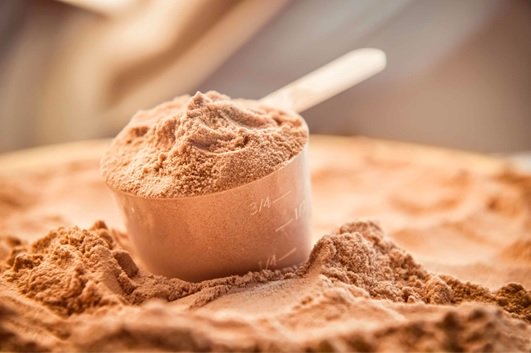Introduction
Whey protein has become synonymous with fitness and health. Known for its high-quality protein content, whey is a favorite among athletes, bodybuilders, and fitness enthusiasts. This article explores what whey protein is, its benefits, and how to incorporate it into your fitness regimen effectively.
What is Whey Protein?
Whey protein is a by-product of cheese production and is a complete protein, meaning it contains all nine essential amino acids necessary for human dietary needs. It’s particularly rich in branched-chain amino acids (BCAAs), like leucine, which are crucial for muscle growth and recovery. Whey protein comes in three main forms: concentrate, isolate, and hydrolysate, each differing in protein content, digestibility, and price.
Benefits of Whey Protein
- Muscle Growth and Repair: The high content of BCAAs in whey protein makes it ideal for muscle growth and repair. It’s particularly beneficial post-workout when your muscles are in need of protein synthesis.
- Weight Management: Regular consumption of whey protein can aid in weight management. Its high protein content can increase satiety, reducing overall calorie intake.
- Strength Enhancement: Studies have shown that combining whey protein supplementation with resistance training can lead to significant increases in muscle strength and size.
- Recovery: Whey protein can help reduce muscle soreness and speed up recovery times, making it easier to stick to a regular exercise routine.
How to Use Whey Protein
Incorporating whey protein into your diet is straightforward. It’s commonly consumed in shake form, mixed with water or milk. However, it can also be added to smoothies, oatmeal, and even used in baking to boost protein content. The key is to consume it when your body needs protein the most, like after a workout or as a meal replacement.
Who Can Benefit from Whey Protein?
While whey protein is popular among athletes, it’s beneficial for anyone looking to improve their protein intake, including vegetarians who might find it challenging to reach their protein requirements through diet alone. However, it’s important to consult with a healthcare professional before starting any supplement regimen, especially for those with lactose intolerance or milk allergies, as whey protein may cause adverse reactions.
Conclusion Whey protein is more than just a supplement; it’s a versatile, high-quality source of protein that supports various fitness goals, from muscle building to weight management. Whether you’re an elite athlete or just starting your fitness journey, incorporating whey protein into your diet can provide significant benefits. Remember, though, it should complement a balanced diet and healthy lifestyle, not replace it.
